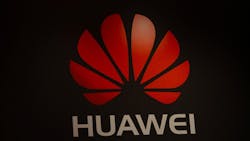Huawei Threat Is ‘Real and Urgent,’ GOP Senators Tell Microsoft
Five Republican senators told Microsoft Corp. that the threat from Huawei Technologies Co. is “real and urgent,” after one of Microsoft’s top executives complained the government hadn’t been open about why U.S. companies shouldn’t do business with the blacklisted Chinese telecommunications firm.
U.S. Senators Tom Cotton, Marco Rubio, Rick Scott, Mike Braun and Josh Hawley sent a letter dated Monday to Microsoft President and Chief Legal Officer Brad Smith with what they described as evidence of Huawei’s wrongful behavior. The letter details several allegations of “espionage activities” and “technology theft and economic warfare.”
“We appreciate Microsoft’s communications with our offices and your understanding of the threats posed by Huawei,” the senators wrote. “We also understand that many American companies have conducted business in good faith with Huawei and other Chinese telecommunications companies. While the U.S. government and American industry must take certain steps to protect our people and our telecommunications infrastructure, we do not want to cause undue harm to those American companies. We believe, however, that a review of publicly available evidence indicates that the security concerns about Huawei are real and urgent.”
Smith told Bloomberg Businessweek in an interview published last month that Microsoft has asked U.S. regulators to explain themselves. “Oftentimes, what we get in response is, ‘Well, if you knew what we knew, you would agree with us,’” he says. “And our answer is, ‘Great, show us what you know so we can decide for ourselves. That’s the way this country works.’”
The U.S. blacklisted Huawei in May, accusing the company of aiding Beijing in espionage. The move forced U.S. chipmakers, software developers and other component manufacturers to stop selling critical smartphone parts to the company.
Smith also said President Donald Trump should know better, citing Trump’s experience in the hotel industry. “To tell a tech company that it can sell products, but not buy an operating system or chips, is like telling a hotel company that it can open its doors, but not put beds in its hotel rooms or food in its restaurant. Either way, you put the survival of that company at risk.”
About the Author
Bloomberg
Licensed content from Bloomberg, copyright 2016.
